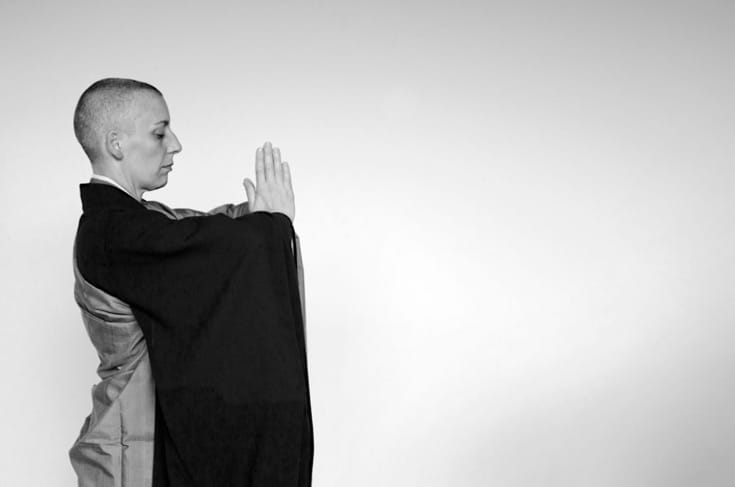A friend and I were discussing a retreat she’d recently attended at a large monastery when she sighed and said, “I just love monks and nuns.” I asked why. I don’t know what answer I expected, but it wasn’t the one I got: “They’re the only ones,” she explained, “who aren’t stressed out by form.”
This is an insight I’ve gone back to many times since. Monastics, for the most part, aren’t asking the why of ritual forms—they’ve signed up to do that kind of practice for the rest of their lives. And many, after a while, have also let go of how. It’s just what they do. When a ceremony goes smoothly, that’s normal; when it falls apart, well, there’s tomorrow. It’s not a big deal.
But for many of us Buddhists, whether we like it or not, form is kind of a big deal. And it can be a source of stress. We wonder as we make that offering at the altar if what we’re doing is culturally relevant or if it’s just foreign superstition. As we look up at a teacher who is seated, literally and figuratively, above us, we ask, Does it have to be this way? And when a senior student pulls us aside to tell us we’re bowing incorrectly or that we need to hold our sutra book just so or that we ate our foods in the wrong order, we may simply think, You’ve got to be kidding me.
One cannot encounter Buddhism without also encountering one’s relationship to form. When we enter into ritual, we come face to face with our assumptions about culture, superstition, tradition, and the dharma itself. And when we enter practice that is less formal, less ritualized, then we confront form’s absence; we are aware, on some level, that we are engaging the dharma in ways that our teachers and our teachers’ teachers may not have been able to recognize.
Like some atheists who not only don’t believe but actively disbelieve, when we try to reject rituals and robes and establish a stripped-down Buddhism, that position is still a response to form. Even when we choose to sit alone in an altarless room and just meditate, we choose a posture. We choose to face the wall or not. We choose a form, a shape for the practice. Because how can we not?
Our task as Westerners, as I see it, is the same as those from Japan or Tibet or Vietnam: to use skillful means in presenting the dharma in a way that is relevant and accessible and clear while staying true to what has been offered to us, holding the teachings in a humble way that recognizes that we don’t yet know what works best for us or what will work best in a hundred years. The tension we feel around form today will shape Buddhism for generations—in what we keep, what we let go, and what we change. Today and tomorrow and next year, in practicing the dharma and in sharing it with others, what forms will we take?


